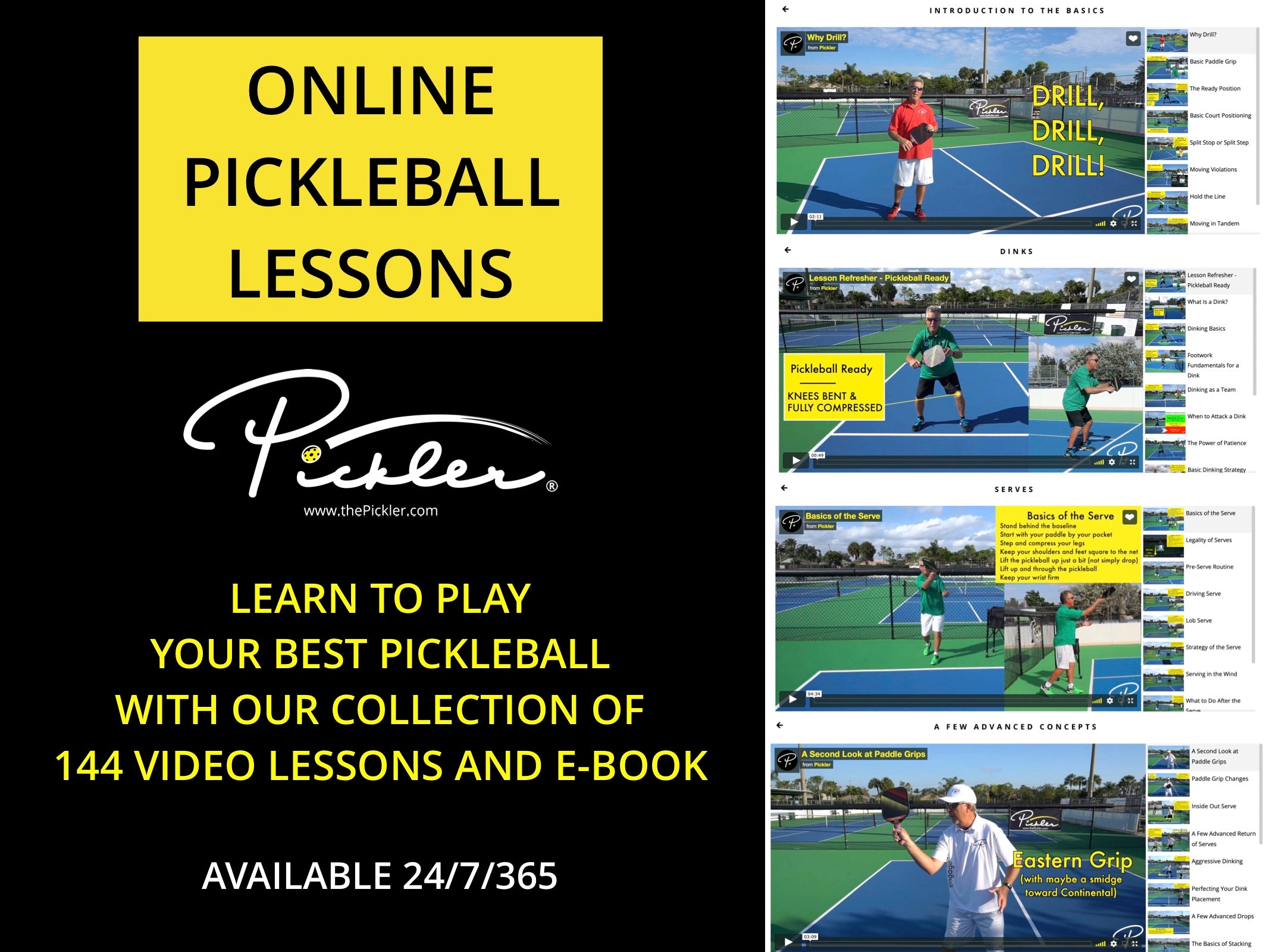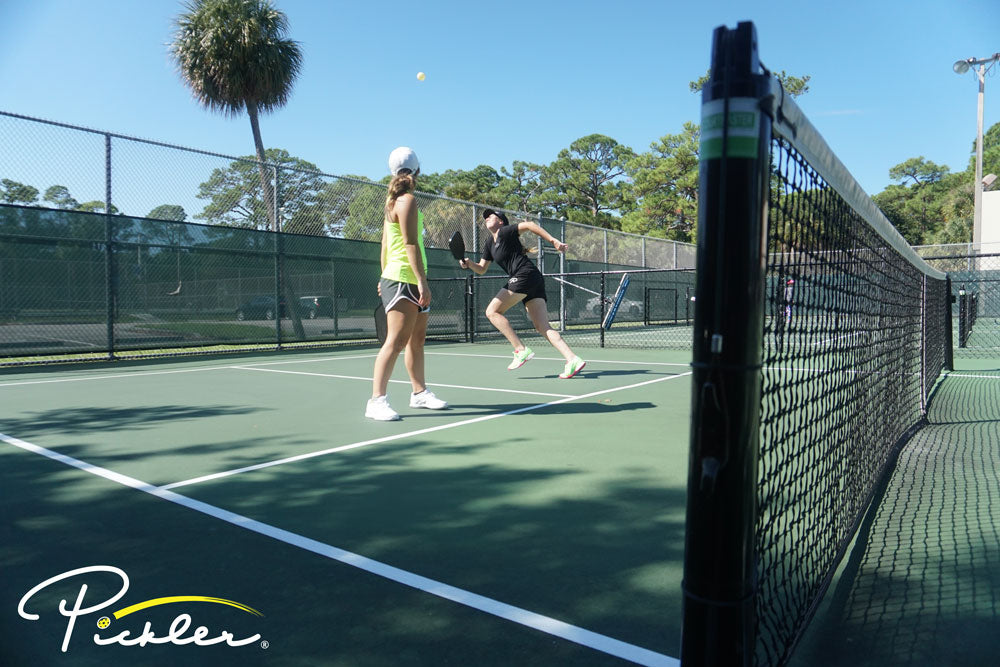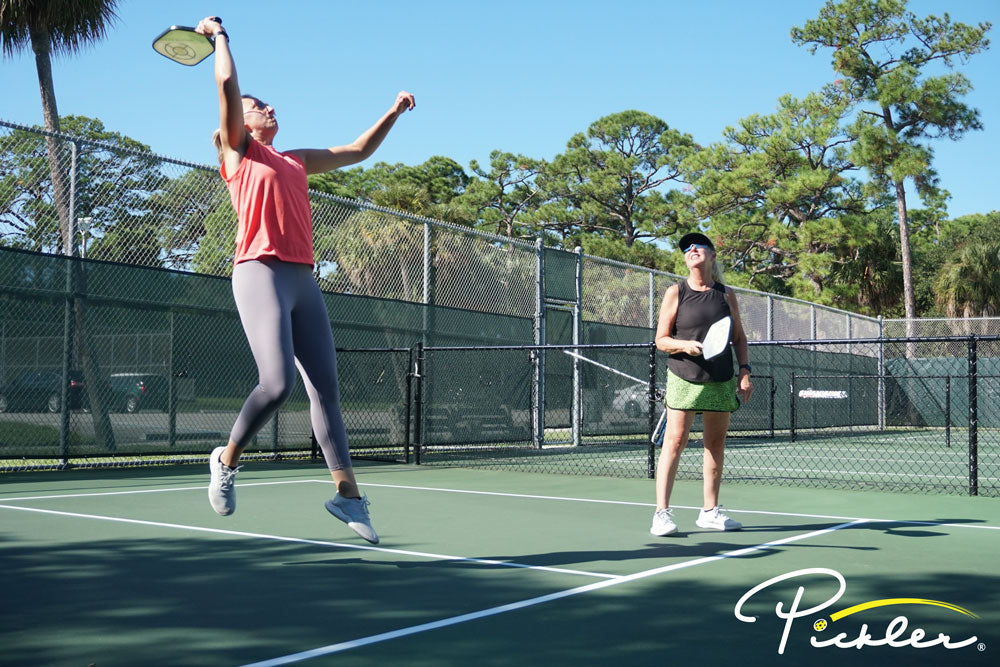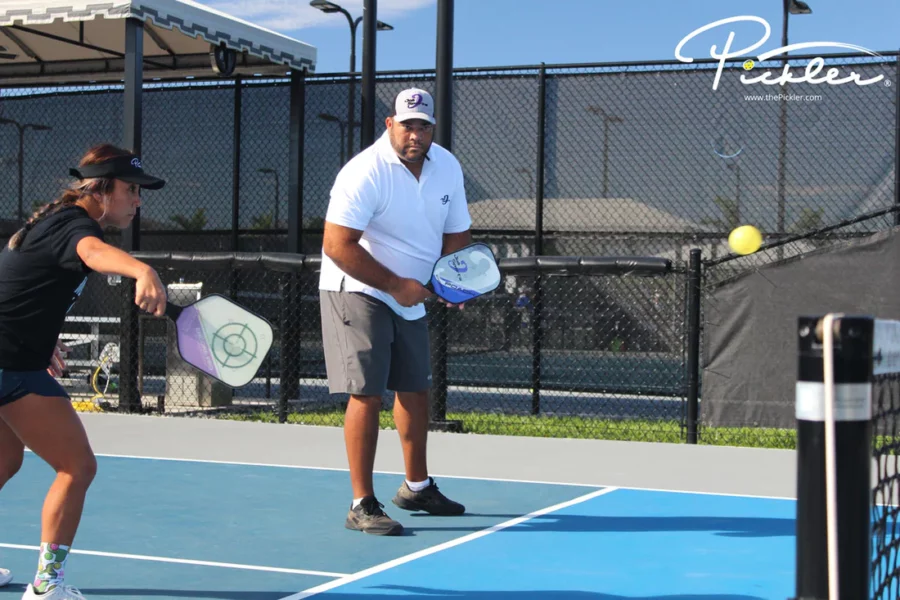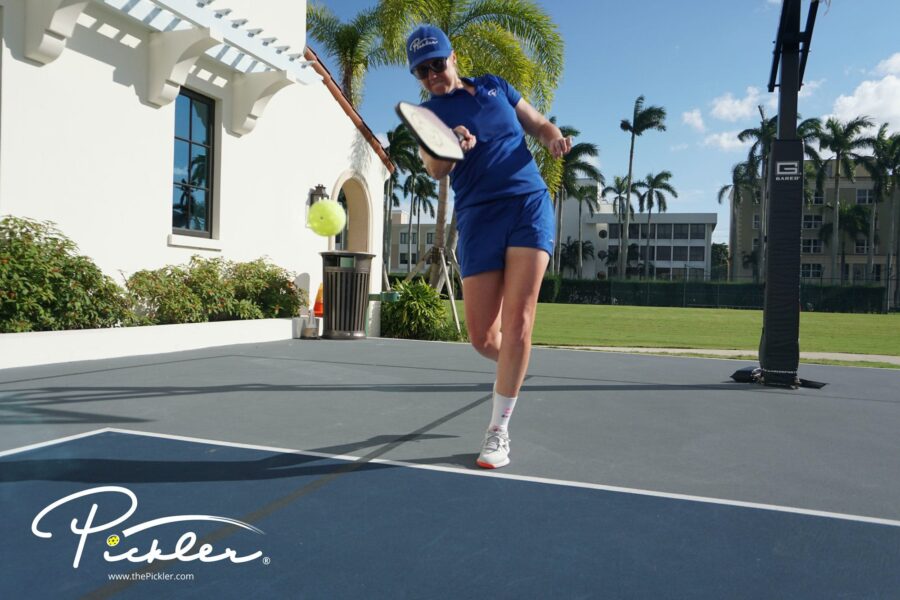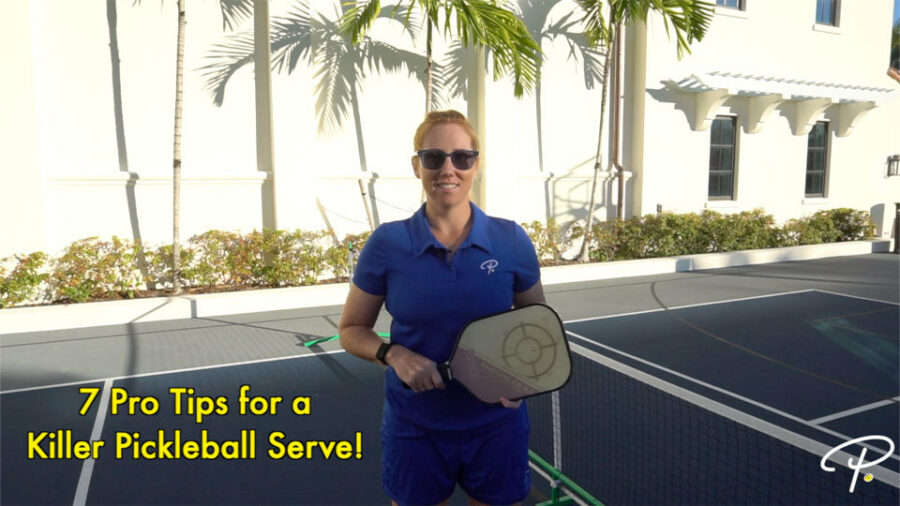A lob is a shot in pickleball where you will put some height on the trajectory of the pickleball and send the pickleball relatively high into the air. Lobs have been a part of the sport of pickleball for decades—perhaps, since the very first pickleball game in 1965 on Bainbridge Island, Washington. However, the lob seems to be becoming a more common shot on the pickleball courts, across all skill levels—including the pro pickleball levels. As a result, it is important to add this shot to your arsenal.
This pickleball blog will breakdown 9 tips for the perfect lob on the pickleball court, including mechanics to hit the lob, as well as pickleball strategies to hit the most effective lob possible.
Offensive Lobs and Defensive Lobs
Before we dive in, we wanted to note that, in pickleball, there are two types of lobs that you can take advantage of:
- Defensive Lob – A defensive lob is a lob with much more arc (think of a very high up and down trajectory), where you expect your opponents to be able to hit an overhead back at you; and
- Offensive Lob – An offensive is a lob that has a flatter trajectory that is just above the reach of your opponents’ paddle (think of a bridge or a rainbow trajectory just over the outstretched arms of your opponents), where you are trying to win the point. An offensive lob may be good strategy to catch your opponents off guard, especially when they are leaning in at the Non-Volley Zone line.
Although many of the pickleball mechanics and strategies may be the same for both a defensive lob and an offensive lob, this pickleball blog will be focusing on the offensive lob. However, it is worth noting that the key differences between a defensive lob and an offensive lob are (1) the angle of the paddle; and (2) the direction of your follow through. A defensive lob requires an open paddle face toward the sky and a vertical follow through, while an offensive lob requires an angled paddle face with an up-and-out follow through. Again, to hit an offensive lob, your paddle will be more closed and your follow through will be up and out in front of your body.
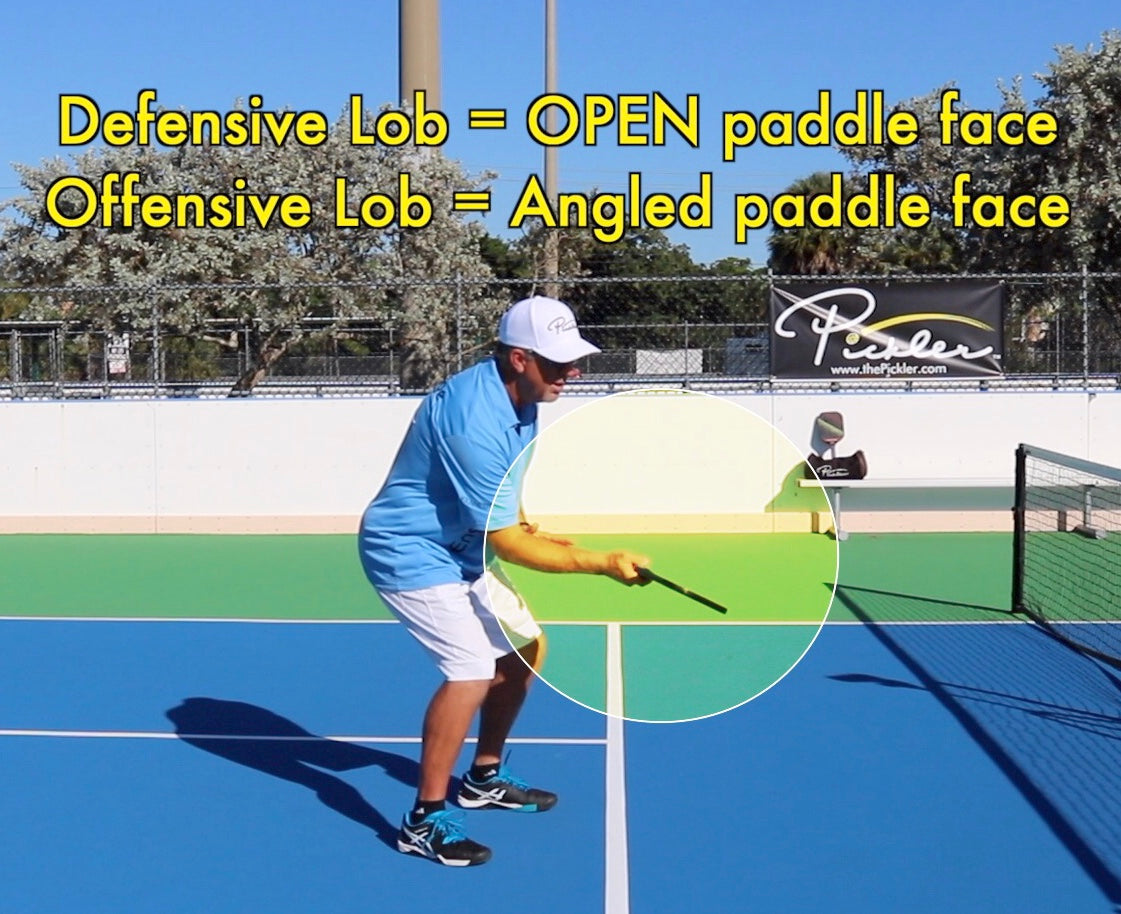
9 Tips for the Perfect Lob on the Pickleball Court
With that background, let’s get right to it… 9 tips for the perfect lob on the pickleball court:
1. Preparation
Prepare for the lob in a similar manner as a drop shot or a dink. It is important to disguise the lob, as it is most effective when the lob is unexpected. For instance, if you see a pickleball player standing tall and leaning back – especially when this pickleball player normally bends his or her knees and remains compressed – then they may be hitting a lob. So, be sure to prepare for the lob in the same manner as a drop or a dink at the Kitchen line. This means that you will move your body behind the pickleball with your paddle out in front of your body and below the pickleball in a compressed stance, with your knees bent.
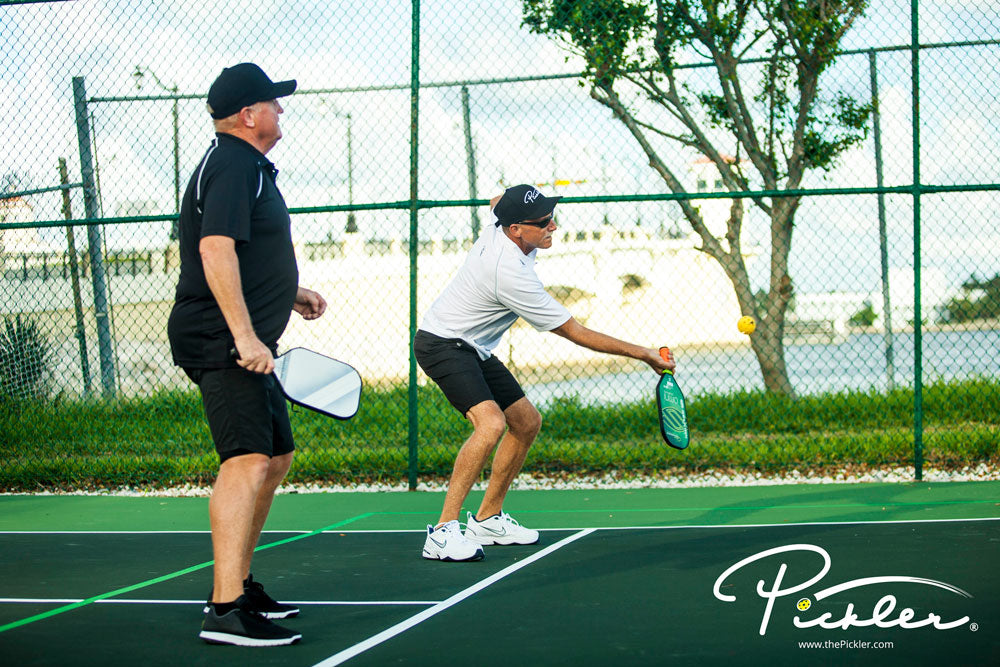
To note, one good way to disguise a lob at the Kitchen line is to hit a volley lob (i.e. a lob on a dink that you hit out of the air). By hitting a volley lob (rather than off the bounce), you will likely have the same mechanics on your lob as if you were hitting a dink, which will help you disguise your shot. Plus, it will be a very unexpected shot, as most players will either dink the pickleball back or go for a speed up shot – and not a lob.
2. Forehands Preferred
Forehand lobs will generally be easier and more consistent than backhand lobs. As a result, as you are moving behind the pickleball, prepare your feet so that the pickleball is off to your forehand side. Then, slightly turn your shoulders and upper body toward your paddle side, bend your knees, and compress your body into your paddle-side hip and knee. Again, this bend and compression motion should be similar to your drop or dink mechanics.
3. Short Backswings
Compress under the pickleball and take a short backswing similar to a drop or dink. It is important to disguise this shot as much as possible, so try to limit your backswing while also generating some power to lift the pickleball into the air.
4. Out Front & Follow Through
Strike the underside of the pickleball out in front of your body. Again, the key differences between a defensive lob and an offensive lob are (a) the angle of the paddle; and (b) the direction of your follow through. A defensive lob requires an open paddle face toward the sky and a vertical follow through, while an offensive lob requires an angled paddle face with an up-and-out follow through. Also, to note, to hit a strong lob, you must really get under the pickleball with your body and your paddle. If you let the pickleball drop too low, you will struggle to get under the pickleball. Hit the pickleball high enough off the ground to allow your body and your paddle to compress under the pickleball.
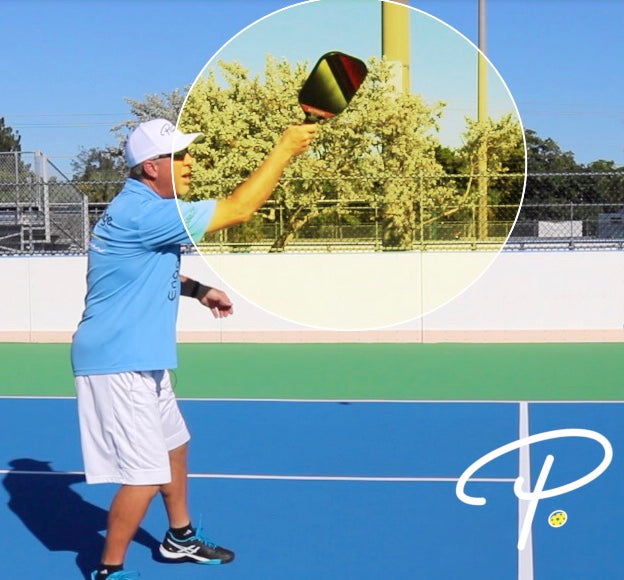
5. Court Positioning
Consider hitting the lob when you are at the Non-Volley Zone line, as the lob will get easier to execute the closer you are to the Non-Volley Zone line. Although you can hit the pickleball in the transition area or near the baseline (for instance, on a third shot lob), the lob will become even more difficult to execute, and will be a shot with a lower percentage of success, the farther back in the pickleball court you are. This is because you will give your opponents too much time to react to the lob and you will probably hit your lob too short, setting your opponents up for an easy overhead.
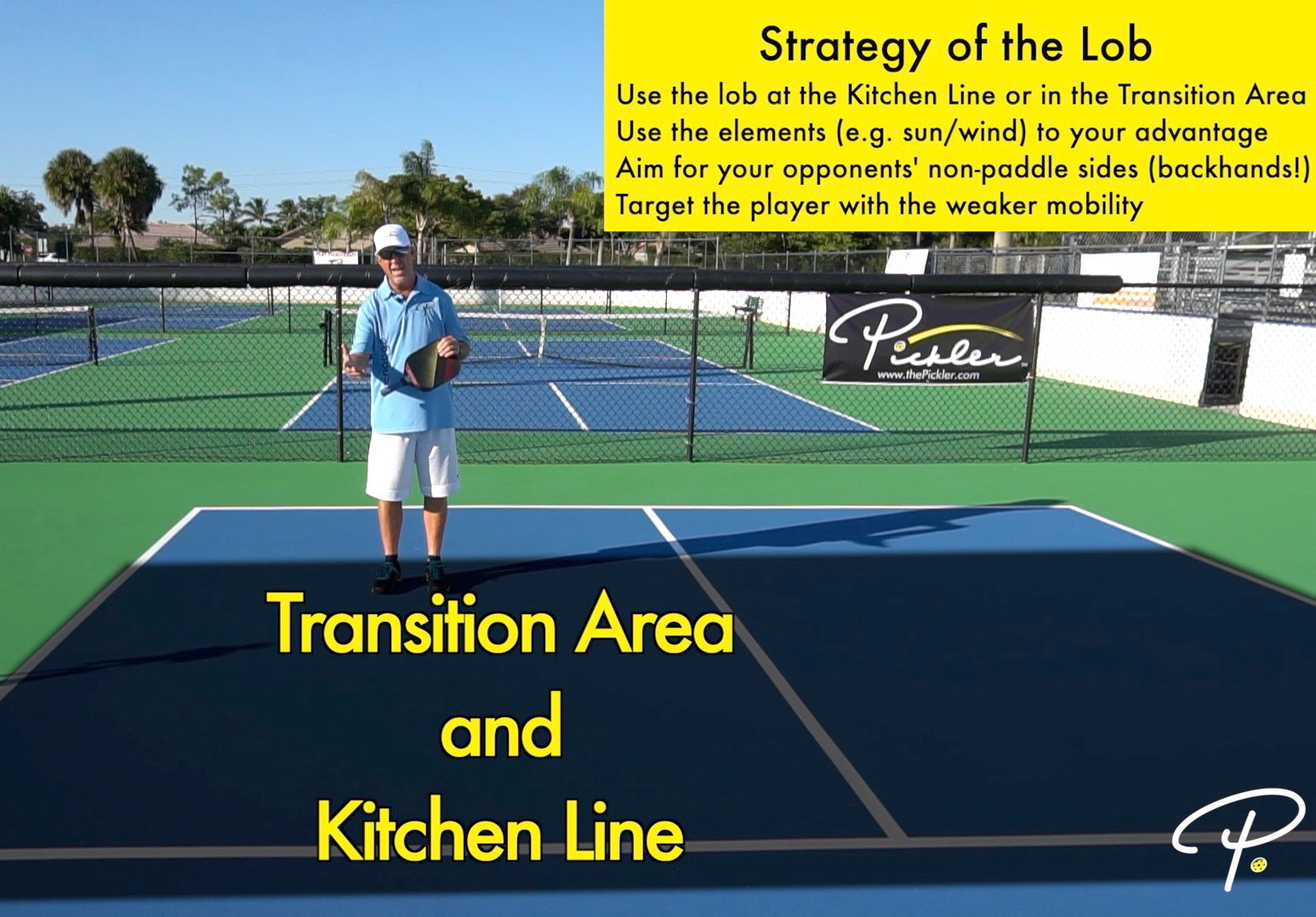
Also, to note, it is generally easier to execute a lob at the Kitchen line when you are in a dink rally, as all of the players on the pickleball court will likely be leaning in over the Non-Volley Zone line and focusing on trying to keep the dink rally going. When players are leaning in, staying compressed, and staying focused on the dink, then the lob may be a great shot to hit to get your opponents moving and off balance.
6. Top Spin
To create a more offensive shot, hit your lob with top spin. The top spin on the pickleball will add more pace, which will make it a more difficult shot to track down. The top spin will also help avoid sailing your lob long out of bounds, as the top spin will help pull the pickleball down out of the air and toward the court. To hit a lob with top spin, you will start your paddle from below your contact point of the pickleball and pronate your paddle from each of your wrist, elbow, and shoulder toward the sky. Think of this motion like a windshield wiper with your paddle and each of your wrist, elbow, and shoulder. Your goal is to grip the bottom of the pickleball with the top of your paddle face and roll your paddle up the backside of the pickleball. This friction of the paddle against the backside of the pickleball is how you will generate the proper top spin on the pickleball.
7. Use the Elements
Whether you are playing outdoors or indoors, use the elements to your advantage. Lobs can be especially effective if you use the wind, sun, lighting, and rafters (in indoor play) to your advantage. In particular, lob the pickleball so that your opponents have to look into the sun, lights, or rafters to find the pickleball. Your opponents will probably have a difficult time tracking the pickleball if they need to look directly into the sun, lights, or rafters.
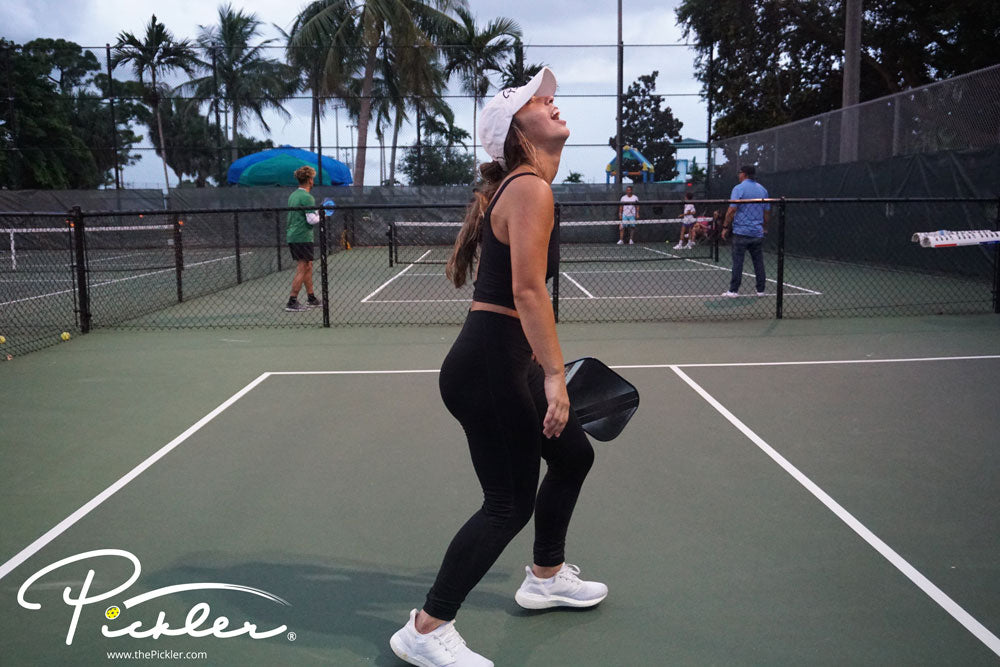
With respect to wind, be careful. The best rule of thumb is to lob into the wind, but not with the wind. In other words, try using the lob when the wind is at your face, as the wind could act as a wall and help make a difficult shot for your opponents. However, be careful hitting the lob too short and giving your opponents an easy overhead. In other words, when lobbing into the wind, you may have to hit the pickleball with a little extra “umph.” Also, avoid using the lob when the wind is at your back, as the wind will likely carry the pickleball out of bounds.
8. Aim for the Non-Paddle Side
Lob to your opponents’ non-paddle side. This will require your opponents to run around the pickleball to hit an overhead or force your opponents to hit a high backhand (which is most likely your opponents’ weaker side). If you lob to your opponents’ paddle side, you could be setting your opponents up for an easy forehand overhead.
9. Target the Player with Weak Mobility
A lob is effective because you make your opponents move back on the pickleball court, so target your opponent with the weakest mobility. Also, consider the height of your opponents. Is one of your opponents shorter than the other, making for an easy lob?
A lob can be an effective shot on the pickleball court. However, do not overuse this shot. Remember to remain unpredictable with your shot selection.
WANT MORE PICKLEBALL TIPS AND STRATEGIES?
Are you looking for strategies on how to beat the lobber on the pickleball court?
Plus, if you want more pickleball tips and strategies on every aspect of your pickleball game, check out Pickler’s online video lesson collection called My Pro Pickleball Coach. My Pro Pickleball Coach is a fraction of the price of one clinic or even one lesson, and features over 140 video lessons (over 7 hours of instruction!), as well as a corresponding e-book. These online video lessons are available on demand 24/7 and breakdown every aspect of the sport of pickleball, including pickleball drills, strategy, and advanced concepts, so you will play your best pickleball.
